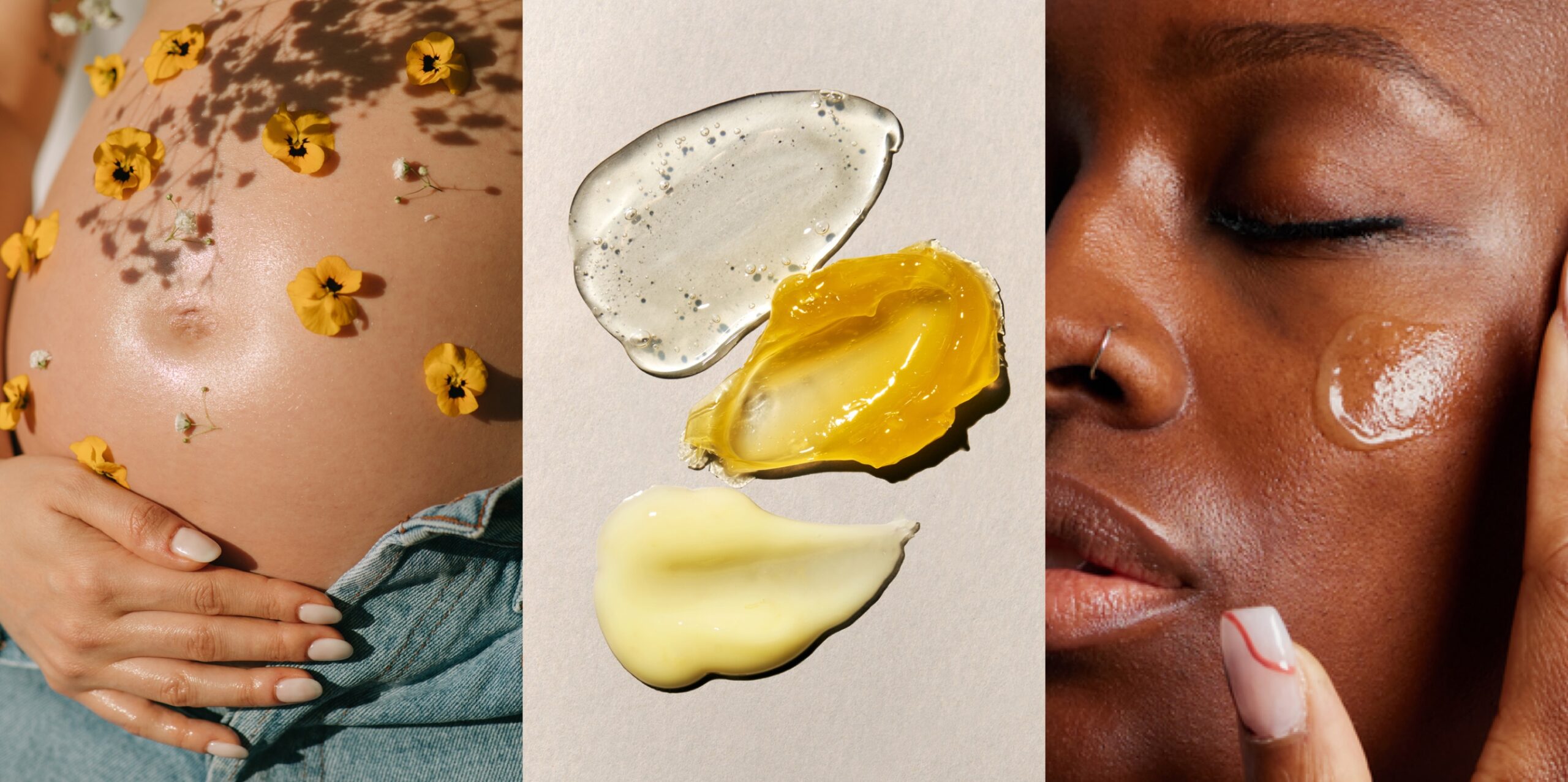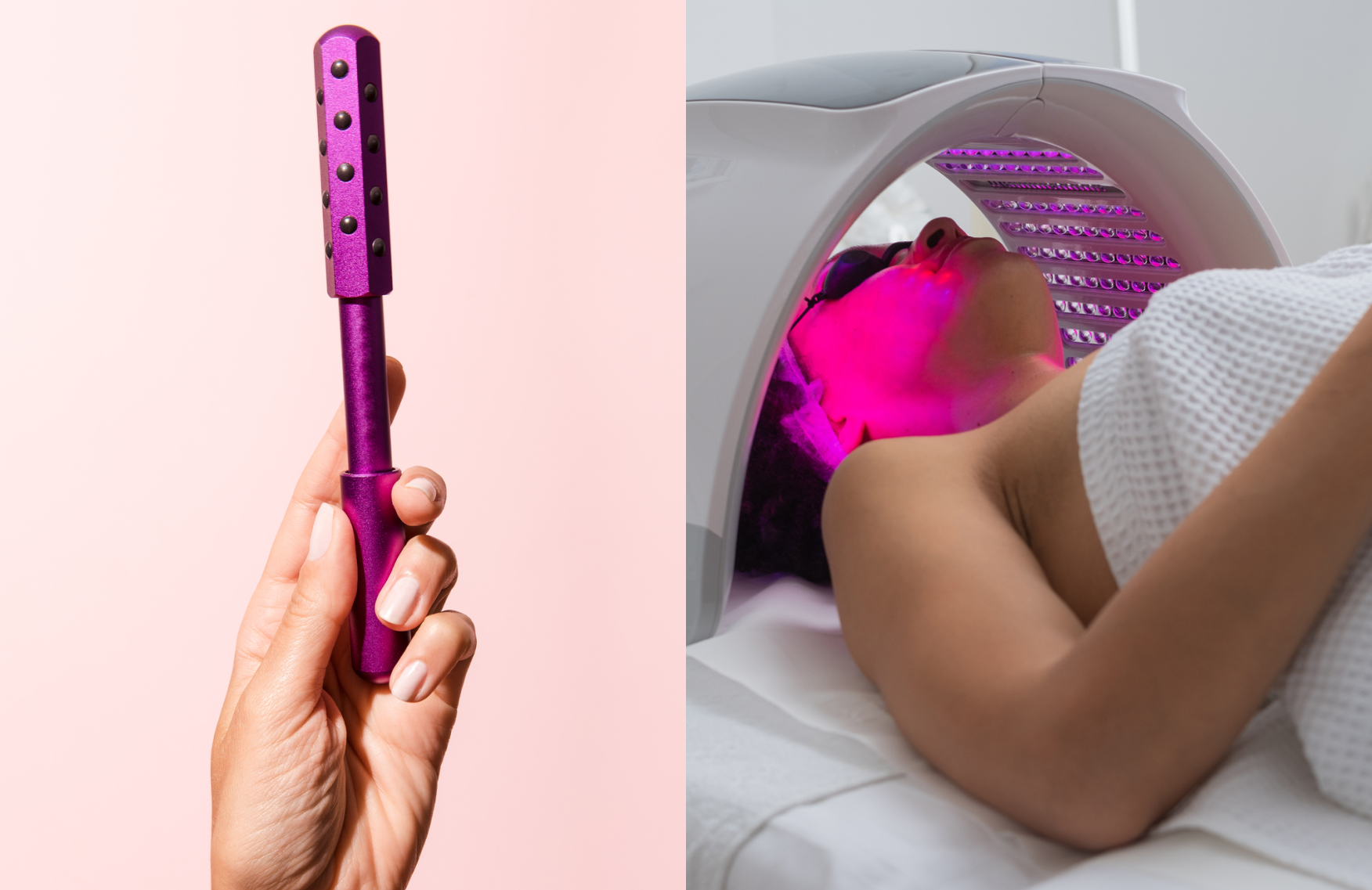Do you need to rethink skincare when you’re pregnant? Of course, says this A-list fertility doc (plus, the dangerous things you can do to your skin while pregnant)

We’ve heard of foods to avoid eating while pregnant, but are there skincare ingredients or treatments that are dangerous during pregnancy? We asked board certified OB-GYN and fertility expert Dr. Aimee Eyvazzadeh (a.k.a. @eggwhisperer) about what to keep in mind—and what to keep out of your face and body—when you’re pregnant or trying to conceive.
What changes typically occur to your skin when you become pregnant?
Dr. Aimee: Some of the most common dermatologic conditions a pregnant individual may experience include melasma (characterized by light to dark brown hyperpigmented patches localized to the face), striae distensae (aka “stretch marks”), acne, varicose veins and skin tags. Some of these skin changes generally result from fluctuations in hormone levels, while others have unknown causes.
What are some skincare ingredients that are dangerous for pregnant people?
Dr. Aimee: Retinoids is one. Short-term exposure is not going to be that bad, so I don’t want people to worry. We just don’t know how much Retin-A will absorb in your skin, so we ask you to stop using it.
The other thing is taking spironolactone, a drug that is often used by people who have acne. It’s very safe to use when you’re not trying to conceive and it does wonders for your skin in terms of reducing the appearance of acne, especially cystic acne. But it is unsafe in pregnancy.
If you’re trying to conceive, stay away from parabens and phthalates which are endocrine disruptors—they can mimic estrogen and block estrogen receptors in the body. Plus, they may also play a role in triggering breast cancer which is fertility-threatening.
What are safe alternatives to some of these dangerous ingredients?
Dr. Aimee: With the growing number of personal care products, it can be difficult to identify safe products to use during pregnancy. The American College of Obstetricians and Gynecologists recommends the Environmental Working Group to browse the safety of a product during pregnancy.
In general, to treat acne, the following ingredients in skincare products are safe: topical benzoyl peroxide, glycolic acid, azelaic acid and topical salicylic acid. Further, look for “fragrance-free” labeled products when browsing personal care products. As always, sunscreen should be part of everyone’s skincare regimen, especially during pregnancy for those who want to prevent the worsening of melasma or “the mask of pregnancy.” During pregnancy, sometimes less is more. You may have heard of the “pregnancy glow,” and it is a perfect time to embrace it.
Are there certain skincare treatments to avoid when pregnant or trying to conceive?
Dr. Aimee: In general, spa treatments like facials are safe and getting [services such as] a mani-pedi is safe. Bring in your own products that are formaldehyde-free so you’re not exposing your baby to those chemicals. If you walk into a salon and it’s not well ventilated, walk right out because you’ll probably expose your baby to those chemicals. I have a rule: if something gives my patient a headache, it’s probably not good for her baby either.
What are the best practices for individuals trying to conceive and for those who are already pregnant?
Dr. Aimee: Hydrate well, get enough sleep, eat healthy, reduce stress and take really good care of yourself. Really mother yourself and treat yourself well. Be active, move your body. See a doctor before you get pregnant and get care as soon as you know you’re pregnant.
The views expressed in this article do not necessarily represent the views of Murad, and are for informational purposes only, even if the advice of physicians and medical practitioners are included. This article is not a substitute for professional medical advice, diagnosis or treatment, and should not looked be considered specific medical advice.
References for this information:
Journal of Clinical Pharmacology, 2011
National Library of Medicine, September 2020


